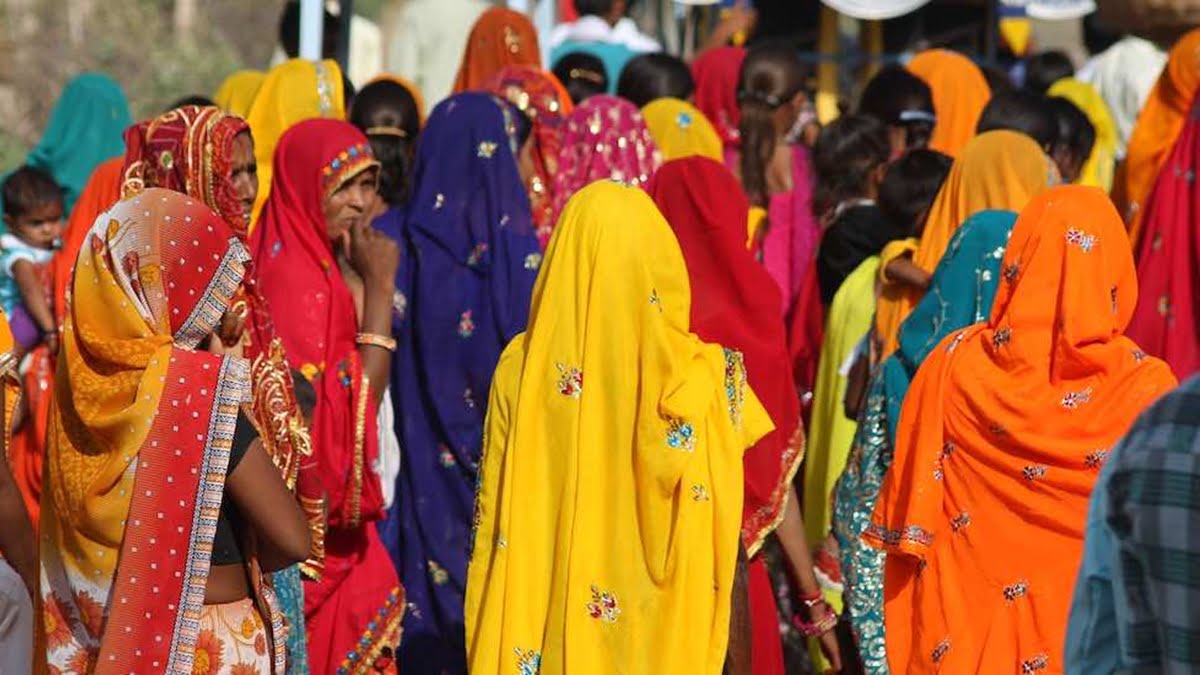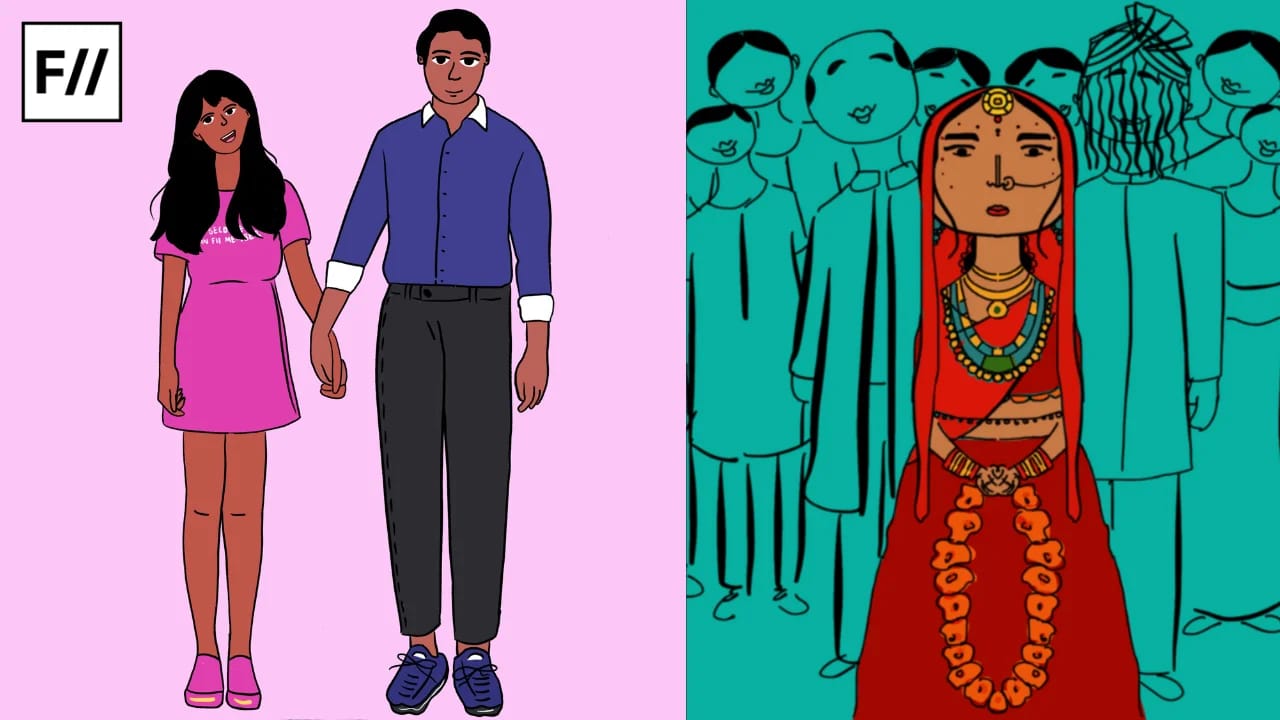‘Me Too’ as a collective movement gained traction in India, with former Bollywood actor Tanushree Dutta’s official complaint against Nana Patekar, a veteran in the Indian film industry. Shortly afterwards, there was an exponential rise in allegations against other established male film producers and actors as more female celebrities came out with their stories of abuse and harassment. Eventually, the urban middle class women outside the film industry resonated with the hashtag and social media platforms began to get flooded with online testimonies. As India grappled with an uninterrupted ‘rape-culture’ and femicide, the narratives of sexual violence that began to surface however also had a distinctively urbanized character as they mostly recounted the lived experiences of upper and middle class women. Social media has been instrumental in empowering many women to reclaim their voices and identity as survivors of sexual abuse. Yet, there are testimonies of violence, especially ones that have no access to social media, that still remain unrepresented and unaccounted for.
The exclusion of subaltern and marginalised ‘working class’ women who do not have access to social media has limited the accessibility of the ‘Me Too’ paradigm only to urban women with a fair amount of social mobility. The contemporary narratives of violence against women are characterised by a systemic exclusion of the testimonies of Dalit and other Bahujan women and the predominance of the ‘voices’ of Savarna women.
Also read: India And Its #MeToo Movement In 2020: Where Are We Now?
In India, the ‘Me Too’ movement has enabled many women to forge inter-personal bonds over shared experiences of sexual vulnerabilities. Women have actively held their abusers accountable and have worked their ways around dismantling the culture of forcing victims to remain silent. The movement has contributed towards a sense of public acknowledgment of the pervasiveness of sexual violence against women in India and the (ab) use of power in workplace dominated by cis-het Savarna men. However, the exclusion of subaltern and marginalised ‘working class’ women who do not have access to social media has limited the accessibility of the ‘Me Too’ paradigm only to urban women with a fair amount of social mobility. The contemporary narratives of violence against women are characterised by a systemic exclusion of the testimonies of Dalit and other Bahujan women and the predominance of the ‘voices’ of Savarna women. The ‘Me Too’ movement in India as a model of collective solidarity also registers a huge defeat as it fails to incorporate testimonies of women facing sexual violence during the outbreak political and ethnic violence. The shift should be directed towards creating a more powerful collaboration of support and acknowledgement of other survivors.

The Act Of Bearing Witness
The question then arises: What responsibility do feminist activists have towards women who endure sexual violence during political and ethnic conflicts specifically in Kashmir and North East and how they can amplify the voices of these women seeking justice? ‘Me Too’ in India has given an urgent space to urban women to narrate their experiences of sexual abuse primarily in work spaces. The use of social media to seek accountability also indicates that these women have been able to deconstruct their lived experiences of ‘shame’ and ‘honor’ and reclaim their agency by recording/documenting their trauma. In the ‘Me Too’ narratives, the absence of diverse voices indicates the urgent need for the praxis to provide an intersectional analysis of sexual violence. Women who have access to social capital need to deconstruct their class position and actively employ the same to work towards including women at the margins whose lived realities are vastly different. The question that needs to be asked is, why the testimonies of women facing military or ethnic violence have remain underrepresented. By not transforming the terms of inclusion, urban feminists in fact contribute to the reproduction of the norms of violence that force women to remain silent.
‘Me Too’ in India has given an urgent space to urban women to narrate their experiences of sexual abuse primarily in work spaces. The use of social media to seek accountability also indicates that these women have been able to deconstruct their lived experiences of ‘shame’ and ‘honor’ and reclaim their agency by recording/documenting their trauma.
Selective documentation of sexual violence-related trauma is detrimental to feminist analysis of women’s lived realities. It constitutes epistemological violence against women who are not only denied space to speak for themselves but are also excluded from the production of discourses on sexual violence related trauma. Feminist movements attempting to seek political accountability for rape and sexual violence has to embrace the personal trauma of women who cannot access the solidarity networks typically found in social media platforms. Discussing the importance of testimonies, Wendy Hesford argues within the context of human rights documentaries the testimonies of victims act as witnesses of unspeakable crimes, and extreme forms of violence. Viewers transform into witnesses, following their exposure to the rhetoric that is developed to create a ground for empathetic engagements. In the process of documentation the witness has to ensure that they do not take up the space of those whose experiences they are being exposed to. In the role of witness, one should be aware of the risk of ‘vicarious victimhood’; the secondary witness (listener/viewer) co-opting the identity of the victim while empathetically engaging with them in a virtual space.
Secondary Witness And Active Collaboration
Feminist activists assuming the role of secondary witnesses, therefore, need to practice extreme caution when they engage with victims as they share their testimonies. The process of including diverse voices within the existing narratives should not lead to the erasure of the victim’s agency as actual witnesses to the violence. I argue that, in India, the ‘Me Too’ movement fails to critically engage with the absence of testimonies of human rights abuse. The exclusion of women’s experience of sexual violence during political and ethnic violence within the frame-work of ‘Me Too’ indicates how virtual spaces lack an intersectional analysis of ethnicity, nationalism, and the politics of identity while documenting testimonies. As an Indian feminist researcher, assuming the role of a witness (both as reader and viewer) to the violence against racially and ethnically marginalized women, I argue that there needs to be a radical change in the methodology of both feminist research and activism. Despite the availability of evidence and contemporary records of mass-violence, the personal trauma does not exist as a separate and ‘known event’ that has already been witnessed. American-Israeli psychiatrist Dori Laub in his paper ‘Bearing Witness’ states that the witness in their role as listener or reader absorbs the victim’s narratives of the experiences. This leads to the process of creating a space where testimonies corroborating to their personal trauma becomes finally “known”. The witness therefore, plays a part in the creation of the knowledge surrounding the victim’s trauma, right from the beginning.
Way Forward
In our role as researchers and activists, we have to incorporate ethical markers within the process of listening to/reading and witnessing the trauma. There needs to be a continuous “unsettling empathetic engagement” to prevent both voyeurism and co-option of the victim’s identity. The transcultural rhetorical acts of witnessing, hence have the potential to create spaces for critical inquiry into the state apathy and indifference of class and caste structures by holding its agents accountable for the violence on bodies stamped with markers of ‘otherness’.
The ‘Me Too’ narratives need to examine how race, nationalism and the idea of citizenship rationalizes the violence against certain groups of women as their voices remain largely unheard and their trauma unaccounted for. Feminist researchers need to expand their bandwidth to confront the questions of whose ‘voice’ are deliberately not heard and to remain aware of their position vis-à-vis their ‘racialised other’ counterparts, and then question the impunity enjoyed by the agents perpetuating this otherisation.
Acknowledging how the Me Too revolution only reached out to mostly those in the urban spaces, Khabar Lahariya started a Me Too Rural series in 2018 that documented the cases of sexual harassment and violence at workplace especially in rural India.
Also read: What Does #MenToo Mean In A World Where Women’s Stories Are Still Dismissed
This is not to say that the Me Too movement in India was devoid of voices of women from the margins. Acknowledging how the Me Too revolution only reached out to mostly those in the urban spaces, Khabar Lahariya started a Me Too Rural series in 2018 that documented the cases of sexual harassment and violence at workplace especially in rural India. Khabar Lahariya is rural India’s only women-led media channel and local newspaper reporting on various aspects, from a feminist perspective. Solidarity becomes futile if feminist spaces fail to address the marginalization of women facing military and ethnic violence and are unable to deconstruct an innately urbanized and classist movement and make it accessible for those at the periphery. The interconnectedness of power, ethnicity and violence needs to be located within the process of seeking political accountability, truth-telling in order to address the physical and psychological harms done to women as a result of mass sexual violence. In the role of witnesses, researchers and activists constantly need to push the boundaries of their own knowledge to include within the process of knowledge production the ‘voices’ that are forced to remain silent.
Deeplina Banerjee is an intersectional feminist pursuing her PhD in Gender and Humanitarian Assistance from the University of Western Ontario. She can be found on Facebook, Twitter and Instagram. She can also be reached at dbanerj3@uwo.ca
Featured Image Source: Village Square




